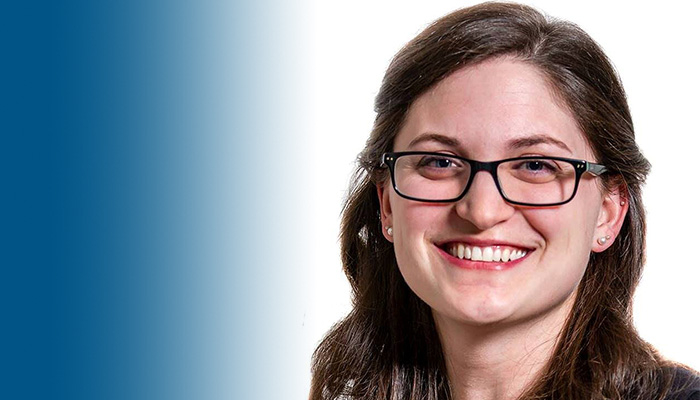HOW CAN WE HELP YOU? Call 1-800-TRY-CHOP
In This Section
Reflections of a Clinical Informatics Fellow: Q&A With Leah Carr, MD

Leah Carr, MD
Editor's Note: Leah Carr, MD, discusses the value of her two-year clinical informatics fellowship in the Department of Biomedical and Health Informatics at Children's Hospital of Philadelphia. Dr. Carr is director of Clinical Informatics, CHOP Newborn Care Network, and assistant professor of Clinical Pediatrics, Perelman School of Medicine at the University of Pennsylvania.
How did you first learn about the fellowship program?
I learned about CHOP's CI Fellowship Program through the CHOP Fellowship website and through conversations with Tony Luberti, MD, our amazing program director.
What motivated you to apply?
I was interested in dual training in Clinical Informatics as well as Neonatal-Perinatal Medicine and was looking for an institution that was able to support experiences in both specialties. CHOP was one of the few places with strong programs in both fields, and I was excited to have exposure to two health systems (CHOP and the University of Pennsylvania Health System). Additionally, the robust faculty and diverse representation of clinical specialties drew me to officially apply to the program.
What project did you work on as a Clinical Informatics Fellow?
One of the best things about the fellowship is that you build a strong project portfolio covering multiple areas in Clinical Informatics across specialties. A project I enjoyed working on was the design, build, and implementation of a clinical decision support (CDS) tool for documenting evaluations of patients at-risk for neonatal hypoxic ischemic encephalopathy (HIE). This tool aids providers in documenting a complete exam for HIE while also suggesting whether a patient may qualify for HIE treatment (i.e., therapeutic hypothermia).
I utilized time and skills from builder training, the CDS, Quality Improvement (QI), and Cognitive Informatics rotations as I worked on this tool. I also focused on creating effective data capture for operational, QI, and research efforts. The tool is now implemented across three electronic health record instances and has served as an intervention in a larger QI effort at the Hospital of the University of Pennsylvania.
What were the main benefits or advantages of participating in the fellowship program?
Joining the Fellowship Program means exposure to all aspects of Clinical Informatics and provides you with structured mentorship. As my interest in Clinical Informatics grew, and I realized that I wanted a substantial portion of my career to be devoted to the field, it was obvious that I would benefit from formal education and guidance by experts. By completing the program, I had a strong informatics skillset, project portfolio, and qualifications to become a board-certified informatician – all of which enabled me to be competitive for Clinical Informatics job positions.
How would you describe the support and guidance provided by the program directors, Coordinators, and mentors?
There is exceptional support of Clinical Informatics fellows and that starts with the leadership of Dr. Tony Luberti. All the faculty serve as incredible advocates for CI trainees. Each Clinical Informatics fellow has unique interests and background, particularly as most come from different clinical fields, and the faculty ensure that these needs are appreciated and addressed. I have been so impressed by the program leadership's willingness and ability to incorporate fellow feedback. The fellowship is constantly evolving in response to fellow experience, which is a testament to the program's responsiveness. The coordinators are amazing at keeping us organized, on task, and ensuring that trainees have access to all the resources offered by the program.
In what ways did the fellowship enhance your career, network, and connections within your field?
The fellowship provided me with a structure that enhanced these areas. Through fellowship activities, I connected with others in the field at conferences, webinars, and via faculty introductions. The training program assisted me in creating a diverse project portfolio that has informed the work I do today, made me a competitive applicant when applying for my own faculty position, and enabled me to serve in the leadership roles I currently hold.
Did the program meet your expectations? If so, in what ways?
The program exceeded my expectations. I could not have anticipated the strong connections, solid educational foundation, and continued support that extends beyond the years of fellowship training. When you graduate from CHOP's CI Fellowship, you become a member of an informatics community that follows you throughout your career. In addition, I am so grateful for the balance I was offered in continuing to practice in my clinical specialty while growing my informatics skillset.
What advice would you give to someone considering applying to this fellowship?
If you've decided the field of Clinical Informatics is a good fit for you, then you should apply to the fellowship without hesitation. As one of the most established Clinical Informatics programs in the country, this fellowship has a track record of providing solid didactic education that is well-integrated into various clinical settings and is supported by outstanding faculty throughout the healthcare system. You will have the flexibility and skillset to apply for any number of Clinical Informatics positions. When going through the application process, get ready to share your ideas, experiences, and questions – the faculty are excited to hear from you and learn more about what you hope to get from this program.


